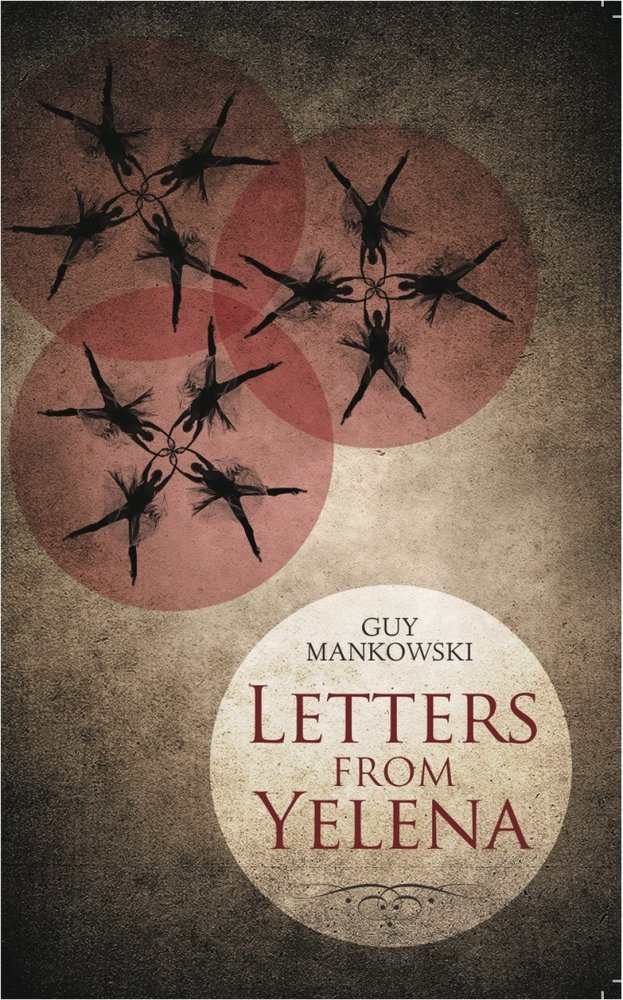
Russia in Fiction’s previous review was of Tom Clancy and Mark Greaney’s 700-page thriller about Russia invading Ukraine. Given the current war scares, it seemed appropriate.
We follow up our review of Command Authority by reviewing a book that in almost every way has nothing in common with a blockbusting Clancy techno-thriller. In almost every way but one in this case, and the commonality is that Letters from Yelena is partly set in Donetsk and in Russia.
Only today President Putin recognised the Donetsk Peoples Republic, in eastern Ukraine, as an independent state. When Guy Mankowski’s Letters from Yelena was published, a decade ago, there was scarcely a hint that this region was on the brink of years of fighting that would lead up to today’s unfolding crisis.
But even if the novel had been written now, we doubt that any of these nationalist, military, geo-political questions would feature much, if at all, in Letters from Yelena. This is no international thriller, but rather a deeply personal and psychological story of one woman’s inner emotional torment. Its structure consists of an interior monologue in the mind of the eponymous heroine.
Letters from Yelena is made up of a series of letters that Yelena Brodvich wrote to her one-time lover Noah. The premise, set up in the novel’s prologue, is that Yelena died as an old woman, leaving an adult daughter to whom she had never really opened up. This daughter, desperate to know more of her late mother, discovers that Yelena had corresponded candidly with a writer named Noah. After some negotiation with the executors of Noah’s estate, she gains access to these letters from Yelena to Noah. It is these that make up Letters from Yelena.
Russia in Fiction had an initial problem working out the novel’s timeline. No dates are given. Yelena was clearly born and brought up in the post-Soviet era. Two things make this apparent. First, her English mother, who died whilst Yelena was a young girl of primary school age, met her Ukrainian father at university and moved to Ukraine to be with him. For a Ukrainian man to be at university in England (presumably) is relatively unusual even today and would have been almost unheard of in the Soviet years. Second, when Yelena eventually moves to St Petersburg, she is clearly travelling from one state to another and she is accepted for study there ‘as a foreign student’ (p. 76).
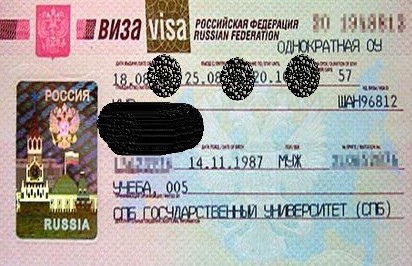
All of this being the case, the prologue, with its discussion of Yelena as having died as an old woman, must be set in at least, say, 2075, if we posit Yelena’s birth in about 1995 and her death ‘in her old age’ meaning that she was at least 80 by then? Which is fair enough, except nothing in the novel’s prologue speaks of the second half of the 21st century, and Yelena’s daughter at one point notes that she had recently taped a conversation, on an actual tape; something that Russia in Fiction has not done at any point in the digital 21st century.
Not that the time-line matters to the novel, the vast majority of which is taken up by Yelena’s letters. In writing these letters, Guy Mankowski does not opt for much in the way of naturalistic style —such as crossings out, typos, poorly expressed phrasing, and so on— but instead goes for the straight, skilfully drafted, beautifully descriptive prose of a contemporary novel. It is these letters alone that take us into Yelena’s world and tell her story.
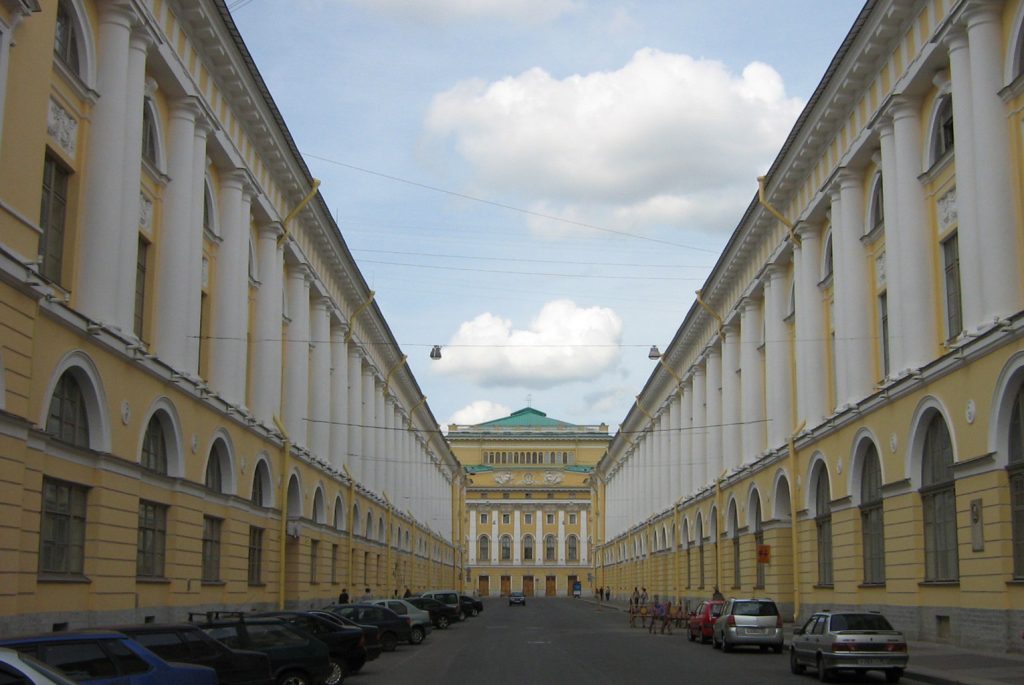
Yelena dances ballet. Brought up in Donetsk, she wins a place to study at the Vaganova — ‘the most prestigious ballet school in Russia; even the world’ (p. 76)
In St Petersburg she walks ‘the elegant streets of Ulitsa Rossi, which housed the Vaganova Academy’ (p. 78)’ .
Letters from Yelena tells the story of Yelena’s childhood and early adult years; as she grows up with a widowed father, younger sister, and abusive step-mother, before escaping from this life to the Vaganova Academy in St Petersburg, and eventually joining a ballet company in England, from where her late mother came.
The Russia-in-fiction categorisation of Letters from Yelena springs from its partial setting, as Yelena tells of her life in Donetsk, St Petersburg, and then England. As Russia in Fiction has often repeated, in this blog we ask two questions in our reviews: what is the novel like? And how does it portray Russia?
But Letters from Yelena is not a novel where place is to the fore, and there is relatively little on which Russian in Fiction can hang its standard second question. The novel’s primary and foremost setting is inside Yelena’s head.
None of which is to say that Russia is not occasionally present in the fiction. Prior to the novel’s writing, the British Council awarded Guy Mankowski a grant to travel to St Petersburg where he was given the rare privilege of behind-the-scenes access to observe the work of the Vaganova Academy of Russian Ballet.
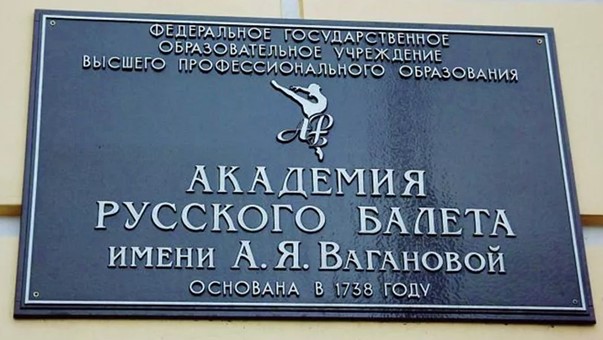
Without suggesting that the author is Noah, Yelena’s first letter writes of Noah as
… a writer in a navy blue trilby, clutching a red notebook, who’s been reluctantly granted permission to sit in on our rehearsal while researching his next book. A voyeur, that is what you are.
Letters from yelena, p. 15
Mankowski —via Yelena’s letters— draws on his British Council trip to set the physical scene of both the Vaganova Academy, and of St Petersburg itself.
The Vaganova was just off the manic Nevsky Prospekt, where screened Pepsi adverts sat opposite ancient palaces. It encompassed one long street, which stretched out just behind the compact majesty of the Pushkin Theatre. The academy filled the buildings on both sides of the street, which were painted in a majestic but slightly queasy shade of yellow. Inside, the halls of the academy were grand but disarmingly blank. Despite the glorious chandeliers that hung from the ceilings, the building itself was filled with a curious, expectant silence.
Letters from Yelena, p. 80
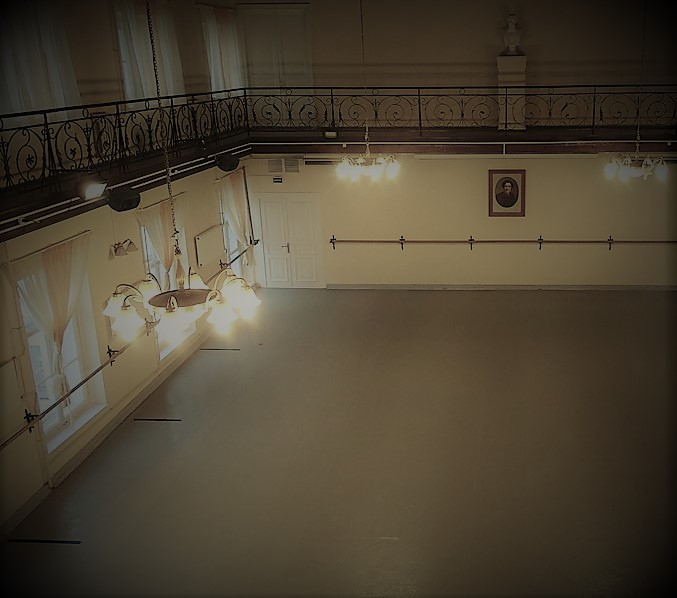
St Petersburg reached inside me and took a hold of something, for the first time. We were passing the Kazan Cathedral and maybe it was the wine, but as we walked past, the two wings of the building suddenly seemed to spread out in an encompassing embrace. Its high pillars towered above us, solemn and patriarchal. The cathedral was bathed in a gold glow, and the city’s lights flickered over its exteriors. It reflected them, resolute amongst the tides of history …
We came to the fountain in Alexander Garden, which spurted thin jets of silver in glistening arcs. All around the fountain couples clung to one another in the fading light.
letters from Yelena, p. 111
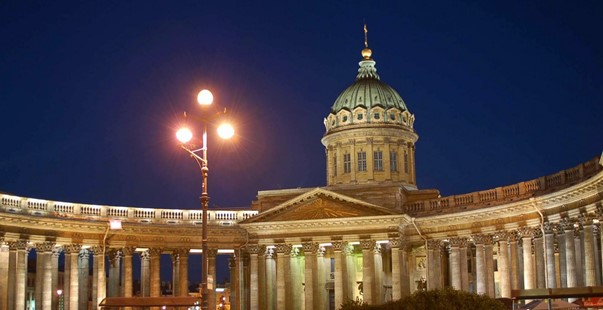
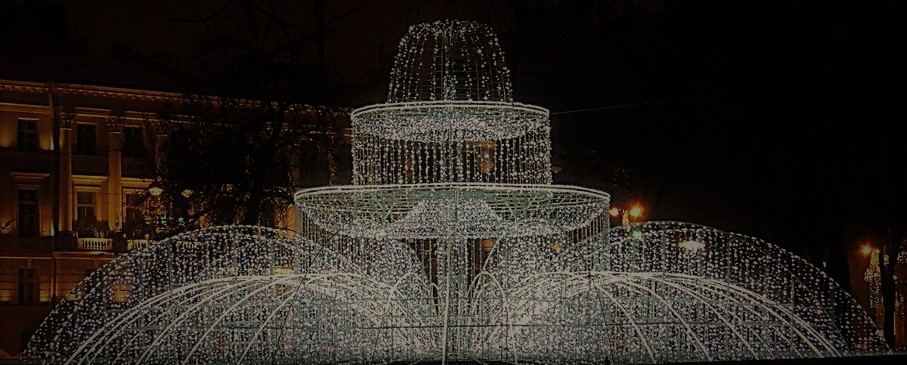
Such well-crafted descriptions of setting briefly bring Russia to the fore, but Yelena moves on to London for the second half of the novel, and most of Letters from Yelena focuses on the emotional rather than the physical. It is Yelena’s relationship with Noah that drives the story on. Or more particularly, as her account takes shape, it becomes ever more apparent that Yelena built her thought-world around her relationship with Noah. Hints of this are dropped as early as the prologue, where, for the only time in the story, Noah’s voice is quoted
‘Your mother revealed herself completely in those letters. It was as though she finally made sense’ … he admitted that he had become an ‘almost totemic’ figure to my mother during her life, for reasons he still could not quite fathom.
Letters from Yelena, p. 7
Letters from Yelena is not quite as Russia-in-fiction-y as most of the novels reviewed on this blog. Whilst it has settings appropriate to our theme, its force and focus lie in a story of hurt and passion, grief and love, determination and fragility. Guy Mankowski crafts moments that make us want to cheer, and moments of heart-stirring sadness. That they have a Russia connection is a cause for Russia in Fiction’s gratitude. After all, that is what made us crack open the pages of Yelena’s letters in the first place.